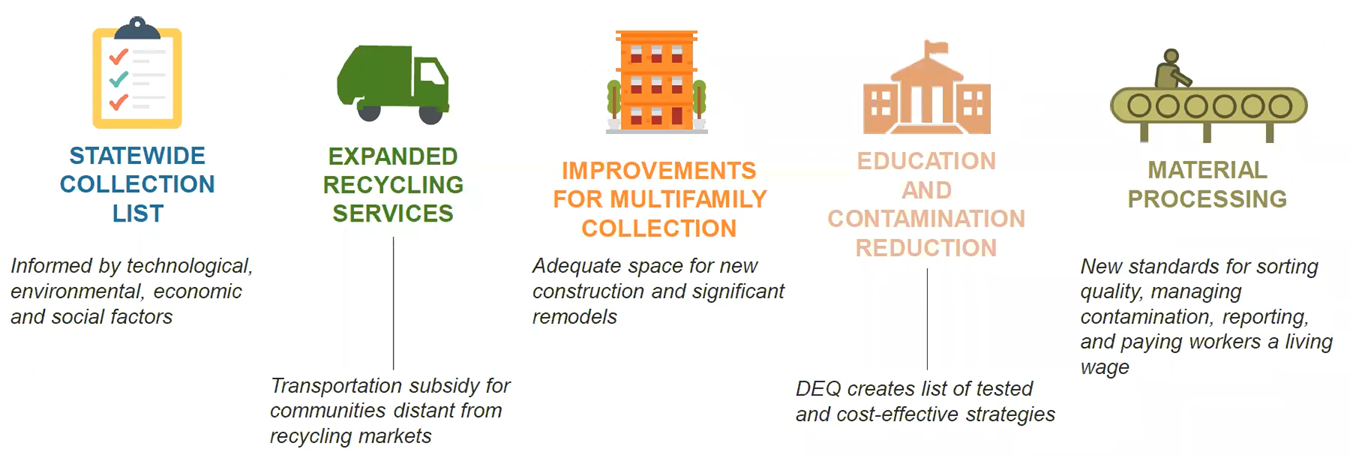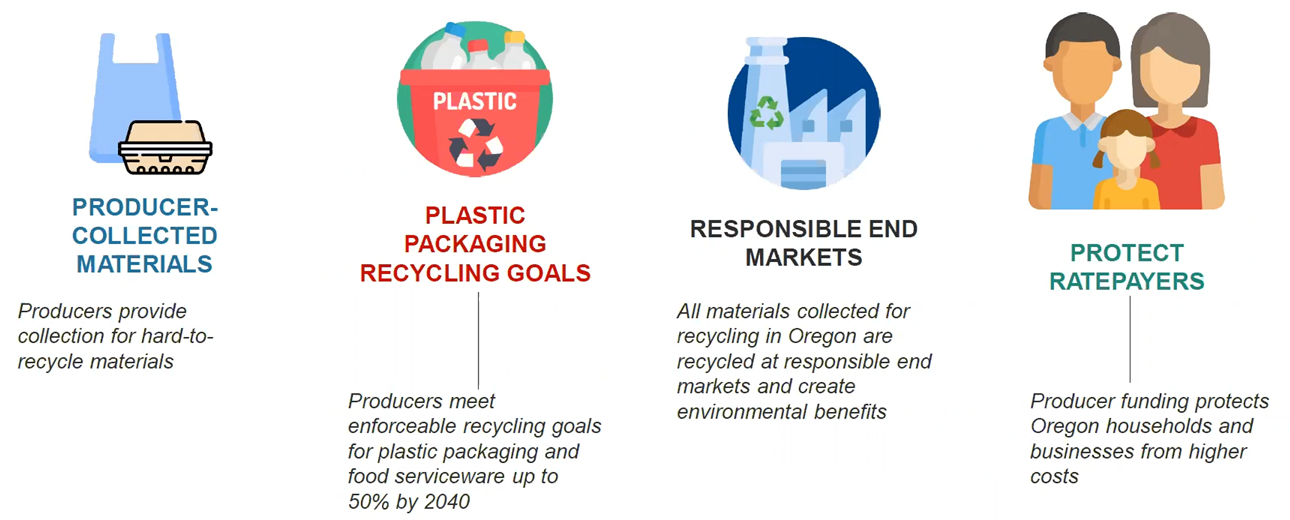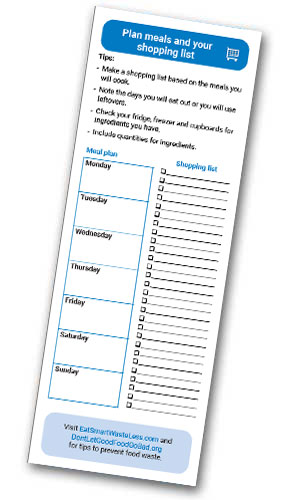Garbage and Recycling
Clackamas County Solid Waste Commission Bylaws and Operating Procedures
Article I
The name of the organization shall be the Clackamas County Solid Waste Commission (the "Commission").
Article II
BOUNDARIES. The boundaries of the Commission shall be the same as those established by Clackamas County.
Article III
PURPOSE, GOALS AND DUTIES. The purpose, general goals and duties of the Commission are as set forth in Chapter 10 of the Clackamas County Code
Article IV
MEMBERSHIP. The Commission shall be made up of five voting members as set forth in Chapter 10 of the Clackamas County Code.
- Membership shall not be limited by race, creed, color, sex, age, heritage, national origin or income. Membership will be granted upon signing the official membership register. All new members signing up will be required to show proof of eligibility.
- Members of the Commission representing the public at-large and collection service franchise holders shall be 18 years of age or older and shall be selected from a pool of applicants solicited, received and appointed by the Clackamas County Board of County Commissioners. Those members of the Commission representing the public at-large shall be a resident of the recognized area.
- Except for public employees who serve by reason of and for the term of the position they hold, members shall have an appointment term of four (4) years. Members of the Commission shall serve until their successors are appointed and qualified. Expiration dates for the terms shall be staggered so that no more than one-third of the members' terms will expire in any year. Current public members seeking a new term on the Commission shall submit an application at least ninety (90) days prior to the expiration of their current term. Collection service franchise holder members may not serve consecutive terms. The Clackamas County Refuse and Recycling Association (CCRRA) shall submit two candidates for consideration for each term appointment.
- The following shall be advisors to the Commission, if they so elect or desire:
- Representatives of the Metro Council.
- The Director of D.E.Q., or his/her authorized representative.
- The Clackamas County Extension Agent, or his/her authorized representative.
- Clackamas County Counsel, or his/her authorized representative.
- The Advisor to the Clackamas County Refuse and Recycling Association or its authorized representative. vi. Representatives from the recycling Industry or persons interested or associated with recycling.
- Public employee members, or advisors or the Commission may designate alternatives to serve in their place.
Article V
OFFICERS. The officers of the Commission shall include the following:
- a. Chairperson. The Chairperson shall preside over all meetings of the Commission and shall co-sign for all authorized expenditures, appoint committee heads and have the responsibility of the performance of such duties as prescribed in these bylaws. The Chairperson shall act as an ex-officio member of all committees.
- b. Vice-Chairperson: The Vice-Chairperson shall aid the Chairperson and perform the duties of the Chairperson in his/her absence or disability. The Vice- Chairperson shall maintain an accurate record of all income and expenses of the Commission and co-sign authorized expenditures. The Vice-Chairperson may maintain a bank account, if applicable, and present a statement of account at every meeting. The Vice-Chairperson's records shall be made available to any member or the public as required by the Oregon Public Records Law.
- c. The Commission shall provide the County Public and Government Affairs Department with a current list of officers and members.
SELECTION OF OFFICERS. The election of officers of the Commission shall be held in conjunction with the annual meeting. Members shall assume their duties immediately upon election to office. All members are eligible for election to officer positions. The Chairperson shall not vote for an officer except in the event of a tie when the Chairperson shall cast the deciding vote.
TERM OF OFFICE. The term of office for all officers shall be two (2) years, however, the officer shall continue to serve until a successor is elected or appointed to that office.
VACANCIES. A vacancy occurs when an officer dies, resigns, is removed, or has more than three (3) unexcused absences from meetings during a calendar year. A vacancy shall be filled by appointment by the Board of County Commissioners. The person appointed to fill the vacancy shall serve the remainder of the unexpired term and until a successor is elected or appointed to that office.
Article VI
MEETINGS. Meetings of the Commission shall be held in accordance with the Oregon Public Meetings Laws. An annual meeting shall be held once per year for the purpose of electing officers and such other business as deemed necessary.
The Chairperson, the Board, or any three members of the Commission may call special meetings at any time upon ten days notice to other members of the Commission; provided however, members may waive such notice. The time and location shall be determined by the Commission. Notice of all meetings shall be provided as required by ORS 192.640 of the Oregon Public Meetings Law. Minutes of all meetings shall be kept and shall be available for public inspection as required by ORS 192.650 of the Oregon Public Meetings Law. A copy of all meeting minutes shall be provided to the County Public and Government Relations Office.
QUORUM and VOTING. A quorum shall be present at a meeting in order for the Commission to transact business. A quorum consists of four members of the Commission, not just those present. A vacancy on the board does not affect the quorum requirements. The Commission can take official action only with the affirmative vote of a majority of the quorum present.
RECORDS. All records of the Commission shall be subject to disclosure except as allowed by exemptions of the Oregon Public Records Law.
Article VII
HEARING PROCESS AND PROCEDURE. The principles of parliamentary rules of procedures such as Robert's Rules of Order shall govern proceedings at any meeting of the Commission. The Chair shall be guided by these principles in deciding any procedural questions. The Chair's decision on procedural matters may be overruled by a majority of the members voting on the question. The Commission may establish a more detailed hearing procedure to provide for an orderly process for holding a public hearing.
Article VIII
COMMITTEES. The Commission may create committees as required to promote the purposes and objectives of the Commission. A chairperson for each committee shall be selected by the Commission Chairperson.
Article IX
AMENDMENTS. These by laws may be amended. Proposed amendments shall be submitted to the County Counsel for approval. Upon approval of the County Counsel, the proposed amendments shall be approved by the members of the Commission. However, the amendments shall not be in effect until approved by the Board of County Commissioners and that approval has been communicated back to the Chairperson. The amended bylaws shall supersede all previous bylaws and become the governing rules for the Commission.
Sign up for our Newsletter
Subscribe to our newsletter for tips on saving money, reducing waste, and keeping your customers happy.
Recycling Modernization Act
A modern makeover for Oregon’s recycling system
The Plastic Pollution and Recycling Modernization Act (RMA) will update Oregon’s outdated recycling system by building on local community programs and leveraging the resources of producers to create an innovative system that works for everyone. The Oregon legislature passed the Recycling Modernization Act (Senate Bill 582) during the 2021 legislative session. The new law became effective Jan. 1, 2022 and recycling program changes will start in July 2025.
What is RMA?
Oregon’s Plastic Pollution and Recycling Modernization Act (RMA) is a statewide law created to make recycling more efficient, environmentally responsible, and consistent across all Oregon communities. It also encourages smarter packaging design to reduce waste. Many initial improvements will take place behind the scenes, like upgrading recycling facilities, creating better tracking systems to renew public confidence in the system, and eventually leading to all communities in Oregon having the opportunity to recycle the same items from the convenience of their home and work.
Starting July 1, 2025, Oregon’s recycling system will begin its largest upgrade in decades. Consumers will no longer bear the full burden of recycling; brands, like Amazon and Proctor & Gamble, will be held financially accountable for the environmental impacts of their packaging, paper, and food serviceware products in the state which will allow for investments in our recycling infrastructure. While some changes will start right away, others may not take effect until 2027 or later.
Summary of RMA Elements:
- System Expansion – All Oregonians will be able to recycle at home and work.
- Statewide Collection List – What Oregonians can recycle at home and work will be the same across the state.
- Recycling Facility Investment – Modernization of our recycling sorting facilities.
- Responsible End Markets – Ensure all items accepted for recycling have responsible end markets locally, domestically, and abroad.
- Contamination Reduction – Invest in education and outreach to minimize the amount of trash that gets placed in recycle bins.
- Recycling Centers – Drop-off locations for additional items like Styrofoam™, propane canisters, shredded paper, large plastic buckets, and more. (Timelines vary by material and location.)

Brands will work with the state’s approved producer responsibility organization (PRO), Circular Action Alliance (CAA) to implement the approved program plan facilitating the rollout of RMA. They will manage the statewide efforts and provide general recycling information on their statewide webpage www.RecycleOn.org/Oregon. For those areas of the state with robust recycling (like Clackamas, Multnomah, and Washington Counties), much will remain the same, including our local recycling, glass, yard debris, and garbage webpages, guides, and information.
ClackCo Impacts
Unlike some parts of Oregon, Clackamas County residents are already able to recycle at home and work. For the most part, what we can recycle is not changing. However, the changes taking place are expected to lead to additional items being added to our recycling list in the years to come. To keep our recycling system strong, it’s important we place only acceptable materials in our recycling bins. Review the recycle guide (available in seven languages online) to be reminded of what items belong in which bin. When we all do our part to reduce, reuse, and then recycle right, we help reduce the energy needed to make new products, conserve natural resources, prevent pollution, and create jobs.
Here is a list of the minor changes to take place in Clackamas County beginning July 1, 2025:
- Additions to the list of acceptable items for recycling:
- Plastic caps OK if screwed on to plastic bottles, jars, and jugs (loose caps are garbage)
- Pizza boxes with grease (only – no food)
- Shredded paper will no longer be accepted curbside (recycling centers will eventually be set up to accept shredded paper).
- Changes to specifics:
- Plastic bottles, jugs, and round plastic containers will need to be 2 inches by 2 inches or larger (instead of the previous 6 ounce minimum).
- Scrap metal cannot exceed 10 lbs. nor 18 inches (instead of the previous limits of 30 lbs. and 30 inches).
Changes that Clackamas County residents will see in the coming years:
- Expanded recycling options on Mt. Hood (details/timing: TBD)
- Recycling centers and/or events for additional items that aren’t accepted in the recycle bin (locations/timing: TBD)
- Expanded efforts to ensure only accepted materials are placed in the recycle bin
- Additional items added to the recycle list over time
Other EPR Programs in Oregon
Like RMA, other extended producer responsibility (ERP) programs exist in Oregon. With EPR, similar to RMA, producers are responsible for the entire lifecycle of their products, especially at the end of their useful life (collection, recycling, disposal). Other EPR programs in the state include:
- BottleDrop – deposit cans and bottles (Oregon beverage containers)
- Paint Care – paints and stains
- Oregon E-Cycles – TVs, computers, laptops, printers, and more
- Bye Bye Mattress – mattresses and box springs
Resources
Food Waste Prevention
Prevent wasted food, repurpose and redistribute, and then dispose to conserve water, energy, and resources.
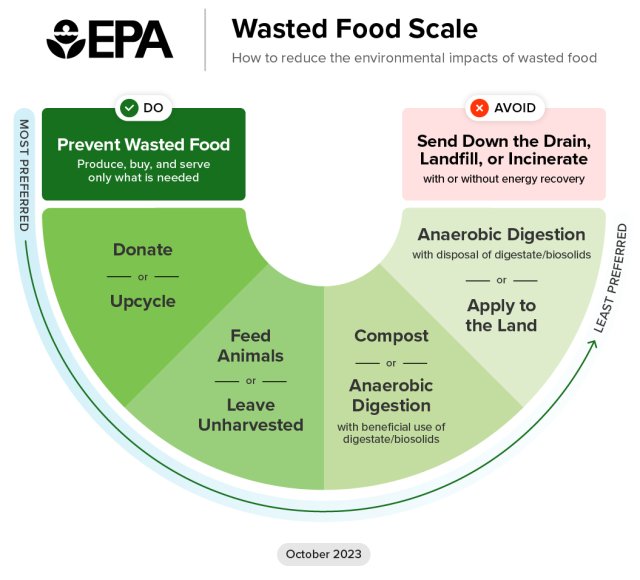 Food is a big part of our daily lives and is important for our health and wellbeing. It's also a major part of the economy, through farming, processing, transporting, storing, and managing food, but the way we produce and use food can negatively affect the environment and society. By making the most of our food—especially by preventing food waste—we can get more benefits and create less harm.
Food is a big part of our daily lives and is important for our health and wellbeing. It's also a major part of the economy, through farming, processing, transporting, storing, and managing food, but the way we produce and use food can negatively affect the environment and society. By making the most of our food—especially by preventing food waste—we can get more benefits and create less harm.
Impacts of Food
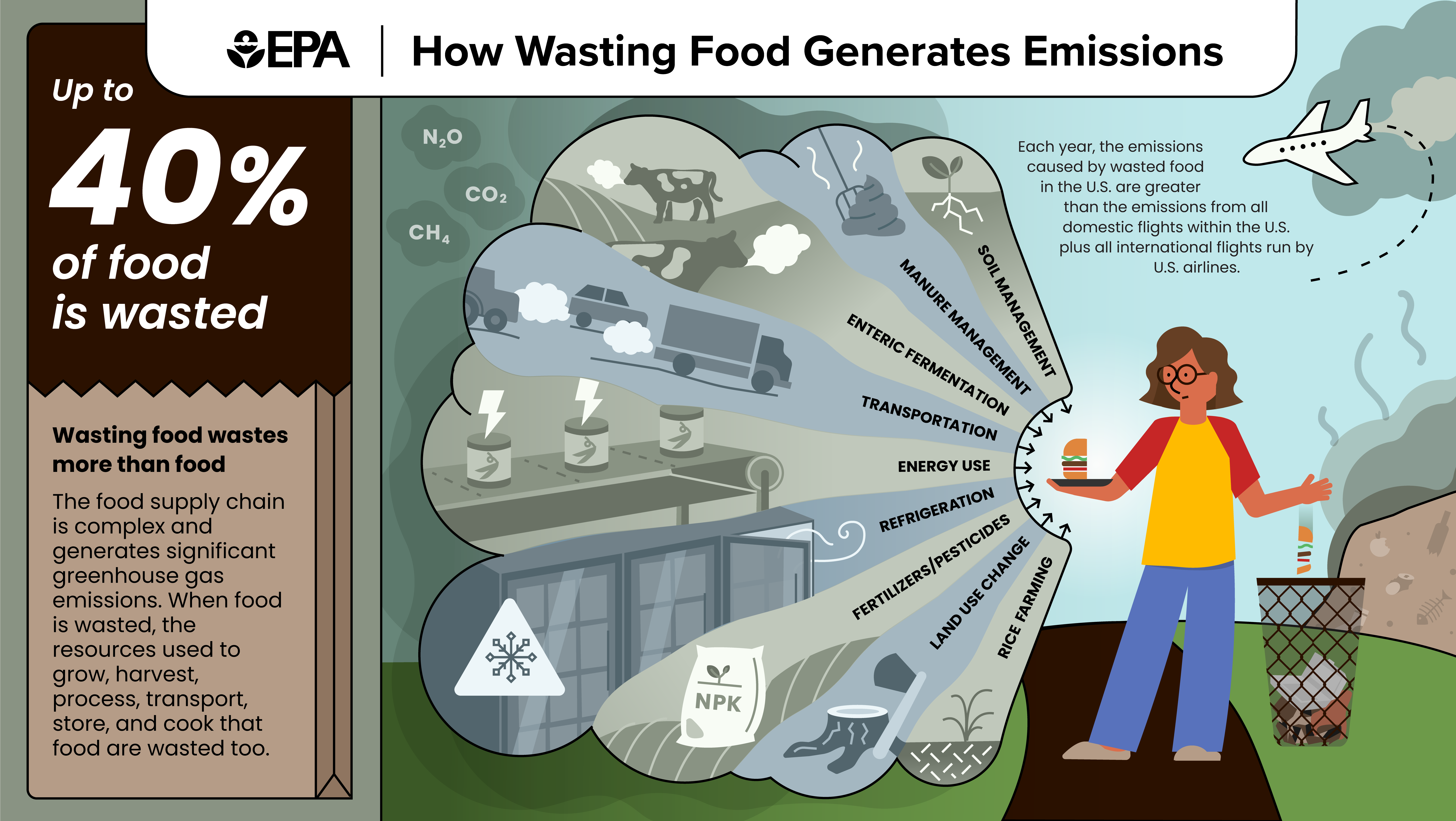 Environmentally, food is one of the most significant materials in our system. It's estimated that 40% of all food produced or imported in the US is never consumed. Annually, 5.9 trillion gallons of freshwater and 140 million acres of agriculture land are wasted on food that is never consumed. Food in landfills also account for 58% of greenhouse gas emissions, and in Oregon, represent 16% of material in our landfills (Oregon DEQ). The impacts of food waste add up and it doesn't only impact our environment, it also wastes labor, energy, resources, and money along the way.
Environmentally, food is one of the most significant materials in our system. It's estimated that 40% of all food produced or imported in the US is never consumed. Annually, 5.9 trillion gallons of freshwater and 140 million acres of agriculture land are wasted on food that is never consumed. Food in landfills also account for 58% of greenhouse gas emissions, and in Oregon, represent 16% of material in our landfills (Oregon DEQ). The impacts of food waste add up and it doesn't only impact our environment, it also wastes labor, energy, resources, and money along the way.
Prevent Wasted Food
Preventing food waste is one of the most impactful ways you can reduce environmental impacts and save money. Did you know that each year, the average family of four spends over $2,900 on food that never gets consumed?
Below are a few steps you/your household could consider to start making small changes to how you shop, store, and think about making your food last longer. Start small, add as you can, and find a plan that works for your situation – any little bit helps.
1. Shop with Meals in Mind
- Keep a list of meals that your household enjoys.
- Make a meal plan each week. Take into account the days when you will eat out or eat up leftovers instead of cooking.
- Keep track of your meals and lists. AnyList, BigOven, Cozi, Cooklist, Mealime, Prepear, and Samsung Food and offer free versions of their apps to track recipes and create shopping lists.
- Note: the county does not endorse nor particularly support any of these apps or websites.
- Utilize The Guest-imator when planning for larger events or holidays to determine how much food to prepare.
Shop at home first
- Make a shopping list based on your meal plan. Include quantities to make sure you buy just what you need.
- Check the fridge, freezer and cupboards for ingredients you already have before you buy more.
- Download this simple meal planner and shopping list.
Stick to your plan
- Hungry? Eat a snack before shopping to avoid impulse purchases.
- Buy only what you need. Pre-packaged produce or 2-for-1 deals can lead to over-buying and wasted food. Shop the loose produce area and dry goods bulk section to get the exact amount you need.
- If you eat fresh foods often, try shopping a little more frequently, but buy less each trip. This way your food is always fresh.
- Buy fruit with varying ripeness so eating can be staggered.
- When choosing produce, imperfect fruits and veggies are often perfectly delicious. When choosing bananas, go for the often-ignored singles and doubles.
2. Prepare Now to Eat Later
Prep right from the store
- As soon as you return from the store, wash, chop, peel, cook or portion ingredients for your weekly meals and snacks. Alternatively, choose a specific day each week for food prep.
- Some items, like berries and cabbage, should not be washed until they are ready to eat.
- If portioning canned goods, transfer food to suitable containers with lids. Do not store food in opened metal cans.
Freeze food for later
- Freeze food such as bread, sliced fruit, cut-up vegetables and meat in meal-size portions if you don't plan to use them within a few days.
- If you've made too much or if leftovers are not going to be eaten in time, freeze them in a freezer-safe container for use later when you need a quick meal.
- Store prepped food in clear containers and place near the front of the refrigerator so they are visible and easy to identify.
- Freezer bags or containers with a good seal can be used to avoid freezer burn.
- Label and date food containers and bags when storing.
- Keep labels or masking tape and a pen nearby to make labeling as convenient as possible.
3. Keep it Fresh
- Fruits and vegetables each have their own storage requirements for the longest life. Find food storage tips using the following resources:
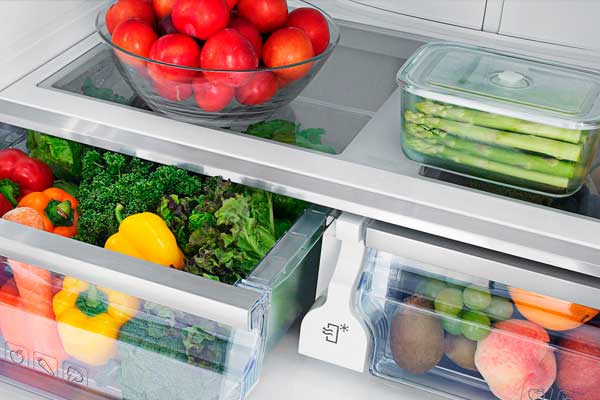 Put fruits that need to ripen such as peaches, plums, avocados and tomatoes in a bowl on the counter until ripe. Once ripe, move produce to the refrigerator.
Put fruits that need to ripen such as peaches, plums, avocados and tomatoes in a bowl on the counter until ripe. Once ripe, move produce to the refrigerator.- Unsure if your food is still okay to eat? Find out at Eat or Toss.
Keep it separated
- Be careful when storing apples, pears, tomatoes and bananas with other fruit — they emit ethylene, a gas that accelerates ripening. Check fruit regularly. Separate very ripe fruit, such as apples and bananas, from your other produce.
- When cooking meals with multiple ingredients like vegetables, proteins and grains, consider storing them separately. This offers more flexibility when making new meals from those leftovers.
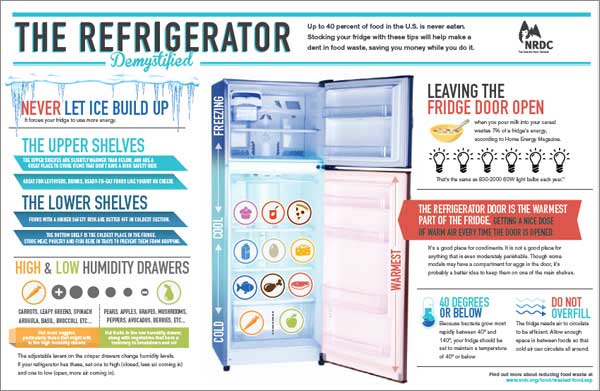 Additional tips
Additional tips
Most refrigerators have specific design elements to maximize the lifespan of your food. Understand your refrigerator's design and see where and how you should be storing your food.
4. Eat What You Buy
Keep track of leftovers
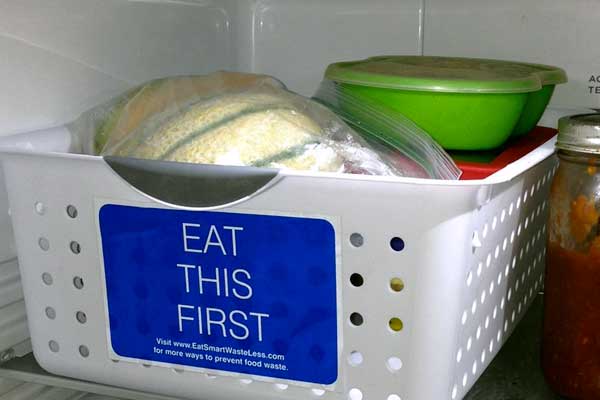 First In, First Out (FIFO) is a useful way that many restaurants and grocery stores use to organize food - and you can use this system at home! Move food that's soonest to spoil to the front of the shelf or put it in an "Eat this first" bin. Move recently purchased items towards the back.
First In, First Out (FIFO) is a useful way that many restaurants and grocery stores use to organize food - and you can use this system at home! Move food that's soonest to spoil to the front of the shelf or put it in an "Eat this first" bin. Move recently purchased items towards the back.- Make leftovers a part of your weekly meal plan by designating one day a week for 'eating down the fridge' or 'leftover lollapalooza'.
- If possible, reheat leftovers in the way they were originally prepared. A toaster oven can help make pizza, breads, fried foods, grilled meats, and seafood much more appetizing than the microwave can.
Get creative
 Think of leftovers as ingredients. Make casseroles, burritos, wraps, frittatas, stews, smoothies and more from leftovers and extra ingredients. Find ideas for leftovers at the Food Hero website.
Think of leftovers as ingredients. Make casseroles, burritos, wraps, frittatas, stews, smoothies and more from leftovers and extra ingredients. Find ideas for leftovers at the Food Hero website.- Puree cooked veggies and a can of tomato sauce for a nutrient dense pasta sauce or puree with a can of broth for soup.
- Learn cooking skills together and challenge family members to transform 'need to use up' food items into a meal.
- Utilize various preservation techniques, such as dehydrating, canning, freezing, pickling, and infusing to save food from being wasted.
Don't be confused by the date labels
- Get to know what date labels mean so you aren't throwing good food in the trash. "Sell-by", "use-by" and "best by" all means different things and none of these identify when food has 'gone bad' or could be dangerous.
- Practice safe food handling habits, store food properly, and learn when and how to use your senses and good judgment to determine if food needs to be tossed.
- Food shelf life estimates are helpful guides. However, they are just estimates so always use your best judgment.
5. Measure Wasted Food
 Consider measuring the food your household throws away. Identify food that was once edible – not peelings, cores or eggshells. Be sure to include food scraped off plates and tossed from the fridge, counter and cabinets. For any duration, choose a measurement method that works best for you from the options below:
Consider measuring the food your household throws away. Identify food that was once edible – not peelings, cores or eggshells. Be sure to include food scraped off plates and tossed from the fridge, counter and cabinets. For any duration, choose a measurement method that works best for you from the options below:- Take a picture or make an estimate, is it more, less or the same as the week before?
- Weigh it. Using a kitchen scale, weigh wasted food on a regular basis and write it down.
- Track the volume. Using a large container, estimate how full is it — quarter full, half or more. Or use a container with graduated measurements.
- Write the results on the Measurement Guide and share with those in your household. Remember to note the reason the food was wasted so you can identify opportunities for improvement.
Start by making changes in the way you shop for, prepare, and store your food. Small actions can make a big difference!
Request free physical resources for preventing wasted food by emailing wasteinfo@clackamas.us.
Rescue and Donate Food
- Save good food from going to waste! Pickup surplus food from nearby stores and restaurants through Too Good To Go.
- Start or donate to a Little Free Pantry in your neighborhood.
- Donate surplus to local food pantries or Gleaners of Clackamas County.
Compost
When it comes to peels, shells, bones, and coffee grounds, (and more), disposal is inevitable. Use various at-home composting methods (compost tumblers, stationary compost bins, worm bins, etc.) to decompose your food scraps. Find more information and tips on home composting through Metro or OSU Extension Service's Master Gardener program.
Residents within the city limits of Lake Oswego, Milwaukie, and Wilsonville can include food waste in their yard waste bins. Including food waste in your yard waste bin outside those city limits may result in a fee from your garbage and recycling company.
Learn more on our Recycle Guide page.
More Resources
Choose to Reuse
A Guide for Businesses to Switch to Reusable Serviceware
New Oregon laws make it easier than ever for restaurants, food carts, and grocery stores to use reusable dishware and accept customers' cups and to-go containers. Learn how to choose reusables: It's good for your business, your customers, and your bottom line.
Why Choose Reusable Serviceware?
Save Money
Restaurants and grocery stores that make the switch to reusable dishware, cups, and cutlery can reduce their purchasing and garbage costs, saving money every month.
For example, coffee shops can save thousands of dollars per year. Read about how one coffee shop saw a savings of over $6,800 per year by switching to reusables.
Reduce Waste
Reusables can be washed and sanitized thousands of times. That means thousands fewer single-use items in the trash.
Customer sSatisfaction
Switching to reusable serviceware can enhance your image, demonstrate your commitment to being environmentally friendly, and offer a better customer experience.
More than ever, customers want to support businesses that go above and beyond in their sustainability efforts. Offering and promoting reusables is a simple, tangible way to show customers you care about reducing waste.
Check out the Choose to Reuse Fact Sheet for tips and tools.
Oregon's New Bring Your Own (BYO) Law
A new way to cut waste and costs
Thanks to Oregon's new law, customers can now bring their own containers to participating restaurants, food carts, grocery stores and other retail food establishments when purchasing food, grabbing to-go orders, or packing up leftovers. While this isn't a requirement of businesses, encouraging customers to bring their own containers saves money, reduces waste, and makes sustainability-minded customers happy.
Last year, 41% of Portland's Nossa Familia Coffee customers brought their own cups or dined in, keeping 52,364 single-use cups out of landfills!
Encourage Customers to BYO
Let customers know you accept reusable containers by posting a BYO sign in a visible place.
Guidelines for Businesses
These easy-to-follow guides will help you safely accept customers' reusable containers while following public health codes.
1. Read the Rules
2. Create a Standard Operating Procedure (SOP)
- Download the SOP template
- Fill out the SOP
- Keep a copy of the SOP on-site
3. Train Staff
- Walk through the SOP together
- Print a "How-to" sign for Staff
Find more details at:
- Oregon Health Authority fact sheet for restaurants
- Oregon Department of Agriculture fact sheet for retail and grocery stores
Additional Resources
Repair Fair - Oregon City
Small appliances, small electronics, clean clothes and textiles.
Learn more regional repair calendar
Room to be announced
 Translate
Translate






